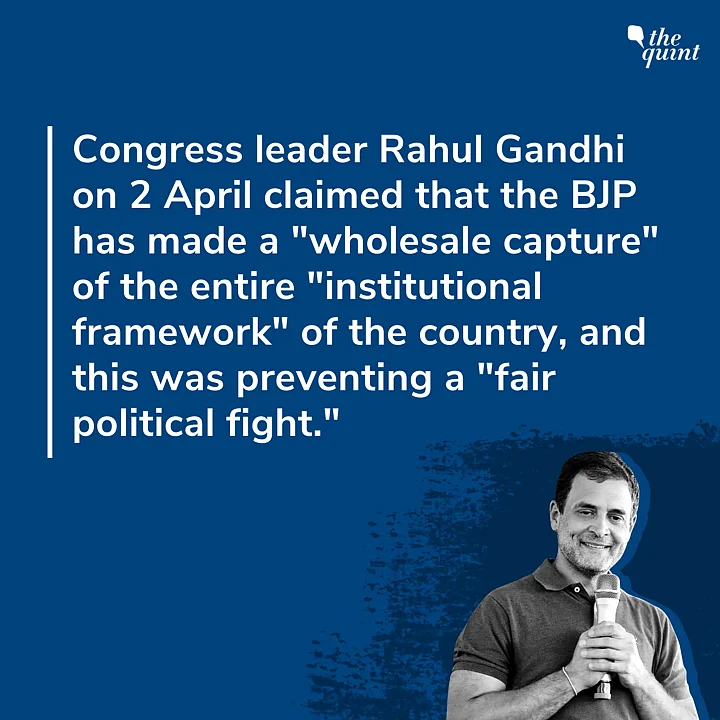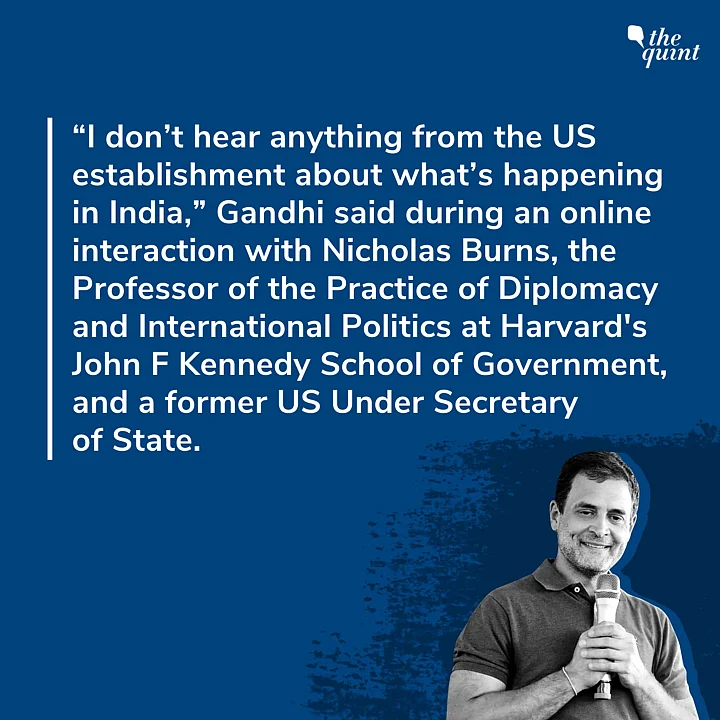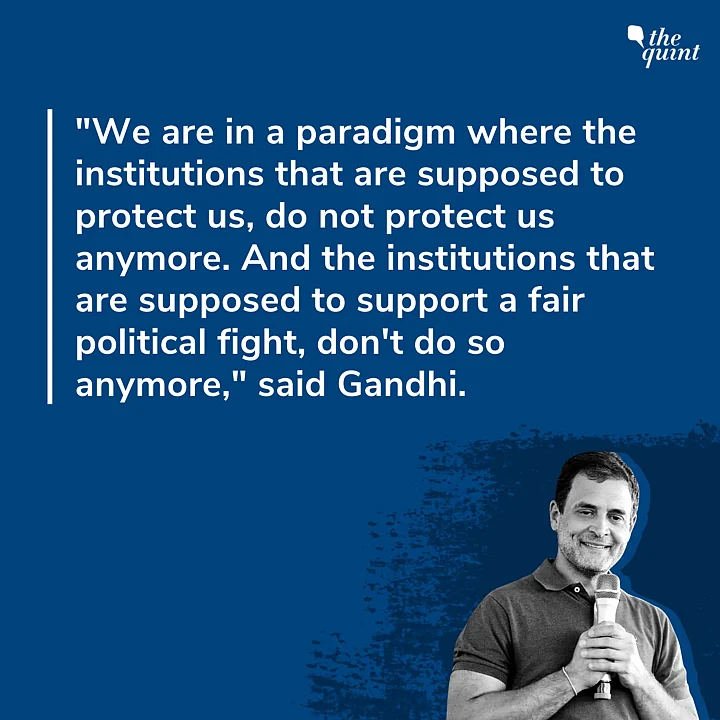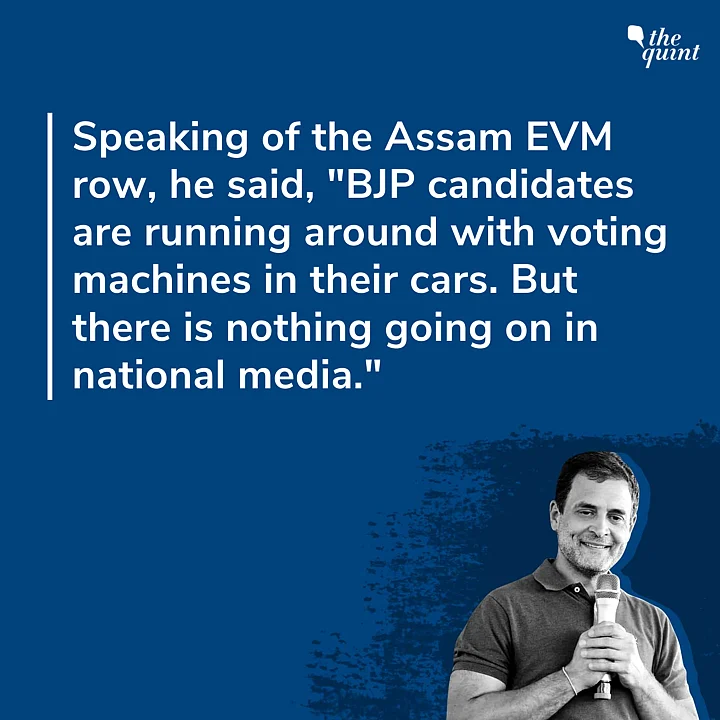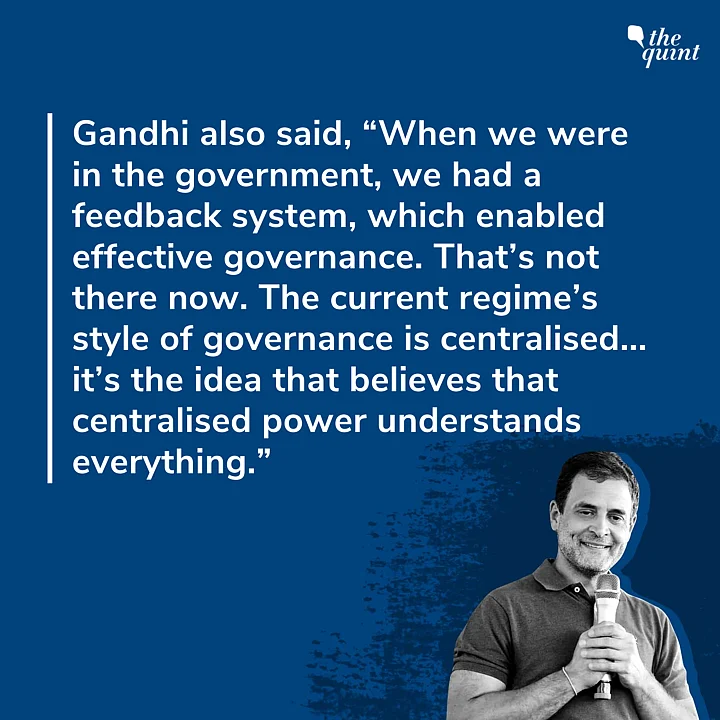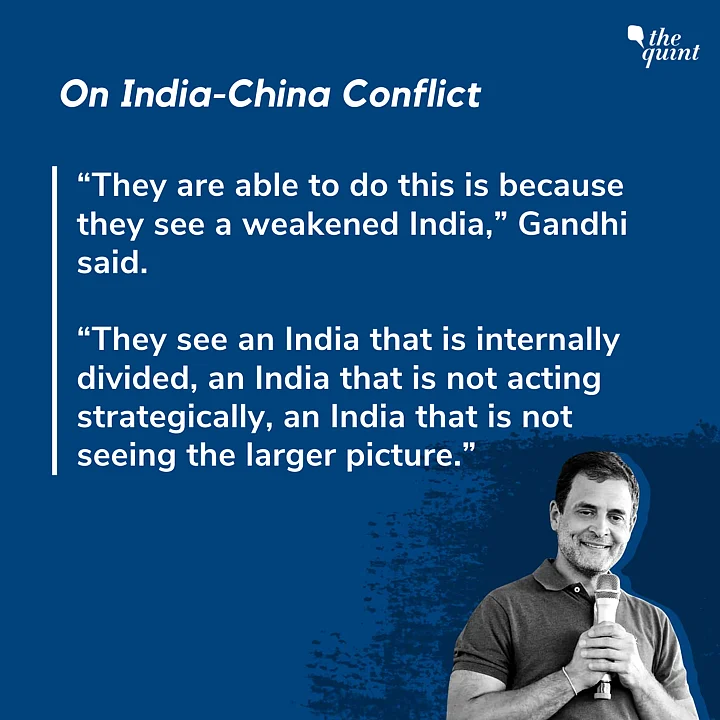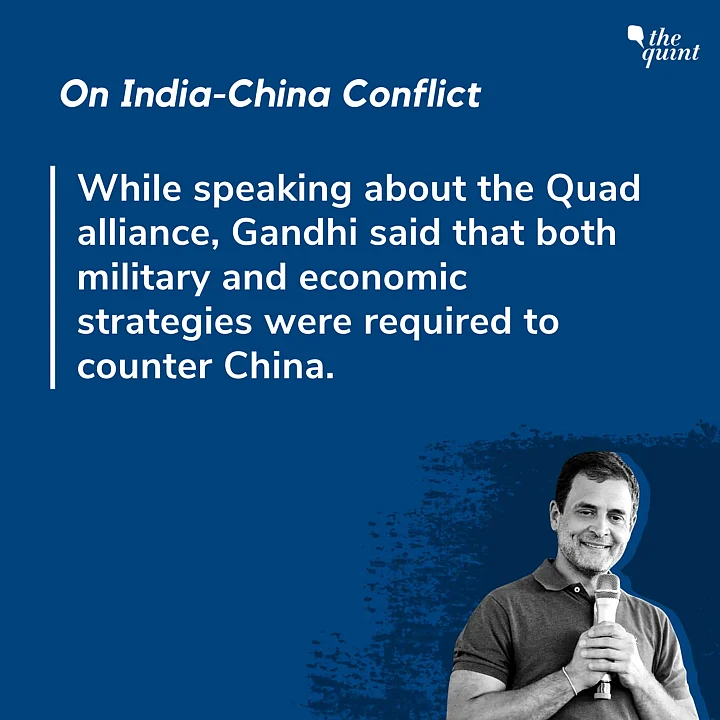Congress leader Rahul Gandhi on Friday, 2 April, claimed that the ruling BJP has made a "wholesale capture" of the entire "institutional framework" of the country, and this was preventing a "fair political fight".
"There is a wholesale capture of the institutional framework of this country and absolute financial and media dominance," Gandhi said.
During an online interaction with Nicholas Burns, the Professor of the Practice of Diplomacy and International Politics at Harvard's John F Kennedy School of Government, and a former US Under Secretary of State, the Congress leader also asserted that the United States was silent about developments in India.
“I don’t hear anything from the US establishment about what’s happening in India,” Gandhi said during the discussion. “If you are saying partnership of democracies, I mean what is your view on what is going on here.”
Attacking the ruling BJP on charges of diluting democratic institutions within the country, Gandhi said, "To fight elections fairly, there is need of institutional structures, a judicial system that protects, a media that is reasonably free, also financial parity, and there is need of a whole set of structures that actually allow to operate a political party.”
"We are in a paradigm where the institutions that are supposed to protect us, do not protect us anymore. And the institutions that are supposed to support a fair political fight, don't do so anymore," he said
This was their second such interaction after one during the height of the pandemic. On the electoral losses of his party, the Congress leader said, "Not just the Congress, the BSP, the SP, the NCP are not winning elections." To bolster his allegation, he gave the example of Assam EVM row, saying: "BJP candidates are running around with voting machines in their cars. But there is nothing going on in national media."
Gandhi also said, “When we were in the government, we had a feedback system, which enabled effective governance. That feedback system is not there now. The current regime’s style of governance is centralised... it’s the idea that believes that centralised power understands everything.”
At the begining of the interaction, he said that the assassination of his father and former Prime Minister Rajiv Gandhi in 1991 changed him. He also said that he had always been accustomed to an "environment" of public service, and had been brought up with the idea that you cannot tolerate injustice.
On India-China Conflict
Scroll reported the Congress leader saying that China was occupying Indian territory but there was no talk of it in the media.
“Why they are able to do this is because they see a weakened India,” Gandhi said, according to PTI. “They see an India that is internally divided, an India that is not acting strategically, an India that is not seeing the larger picture.”
According to Scroll, Gandhi, while speaking about the Quad alliance, said that both military and economic strategies were required to counter China.
Border tensions flared up in June after deadly clashes between Indian and Chinese soldiers in Ladakh’s Galwan Valley. Twenty Indian soldiers were killed in the clashes. China identified the casualties on its side only in February, saying that four soldiers died.
The disengagement process along Pangong Tso in Ladakh began on 10 February and the process has been completed. India has asked China to build on the progress that the two countries had made in Pangong Lake in Ladakh and disengage from other friction areas in the region too.
(With inputs from IANS, Scroll)
(At The Quint, we question everything. Play an active role in shaping our journalism by becoming a member today.)

